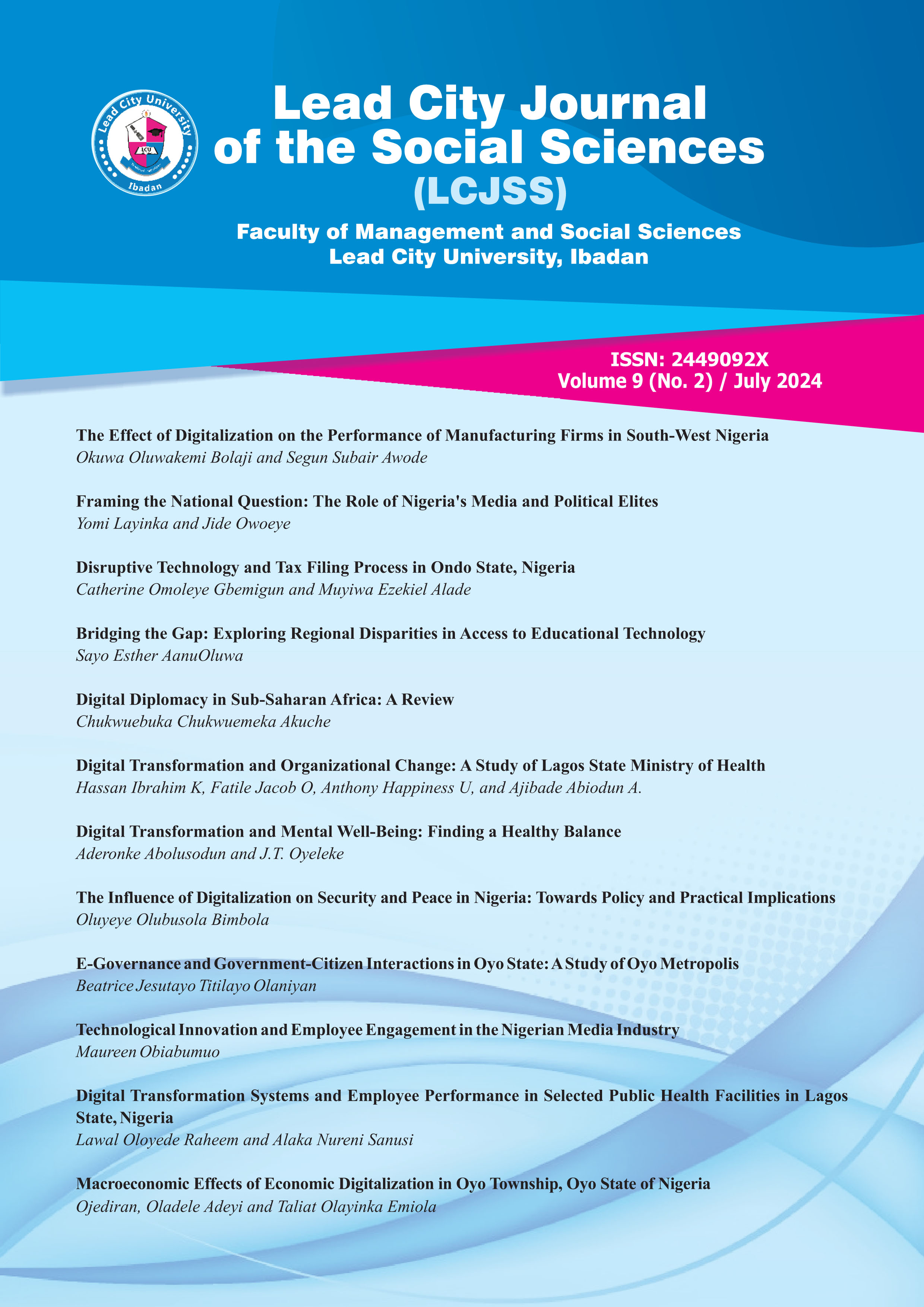The Influence of Digitalization on Security and Peace in Nigeria: Towards Policy and Practical Implications
Keywords:
Digitalisation, Security, Peace, Technology, NigeriaAbstract
The integration of digital technology in the 21st century has led to considerable modifications
in societal activities, such as security, peace, economics, governance, and social structures.
Digital breakthroughs have created unique chances for creativity and economic expansion,
promoting interconnectedness and collaboration between different countries. Nevertheless, the
digital revolution also presents obstacles to security, and peace as the interconnected digital
environment eliminates traditional limitations and generates novel vulnerabilities. Emerging
threats such as cyberbullying, online harassment, and disinformation endanger the well-being
of individuals, the stability of societies, and the security of nations. The study examines the
effects of digitalization on security and peace in Nigeria, specifically addressing the advantages
and challenges posed by digital technologies. The statement underscores the importance of a
holistic approach that encompasses technological progress, policy updates, and international
cooperation to properly tackle the difficulties brought about by digitalization. The research
examines the impact of digitalization on communication, data management, education, and
early warning systems in Nigeria. It also addresses the security concerns of insurgency,
banditry, and terrorism. The report provides policy and practical suggestions to effectively
utilize digitalization's advantages while minimizing its risks, with the goal of improving
security and peace in Nigeria.

